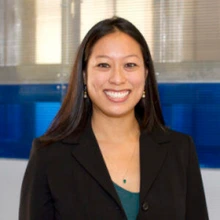When

Thursday, October 31, 2024 at 4:00 P.M.
Candace K. Chan
Navrotsky Professor of Materials Research
Materials Science & Engineering
School for Engineering of Matter, Transport and Energy
Arizona State University
"Design and Manufacturing Principles for Future Battery Technologies"
AME Lecture Hall, Room S212
Zoom link

Abstract: As the demand for improved energy storage technologies increases, there is a need to better design and manufacture the materials and components for next generation batteries. In the first part of the talk, I will discuss our group’s experience with developing flexible lithium-ion batteries for wearable applications. While there has been progress in flexing entire battery cells during electrochemical cycling, further research is needed to understand how mechanical failure affects individual battery components, especially the electrodes, after flexing. In our studies, we intend to highlight how characteristics of composite electrodes, such as the active material particle size, mass loading, and binder, impact the mechanical failure modes in flexible batteries.
In the next part of the talk, I will discuss our efforts with improving the manufacturability of solid-state batteries using garnet-type solid-state electrolytes such as Li7La3Zr2O12 (LLZO). We recently demonstrated that doped pyrochlores can be used to synthesize dense LLZO through a reactive sintering approach, a process we call “pyrochlore-to-garnet” (P2G). Not only does the P2G method provide an alternative way to prepare LLZO with greatly reduced heat treatment time, but different microstructure properties that lead to improved lithium dendrite resistance are also observed. Integrating LLZO solid electrolytes into all-solid-state batteries also presents additional challenges. We report on the use of atmospheric pressure, open-air plasma to remove lithium carbonate species from the surface of LLZO to decrease the interfacial impedance with electrodes. This platform demonstrates a path towards open-air processed LLZO with improved interfacial properties, which can help the manufacturability of solid-state batteries for commercial applications.
Bio: Candace K. Chan is Navrotsky Professor of Materials Research and Professor of Materials Science and Engineering in the School for Engineering of Matter, Transport and Energy within the Fulton Schools of Engineering at Arizona State University (ASU) in Tempe, Arizona, where she has been a faculty member since 2011. Dr. Chan received her BS in chemistry from Rice University, PhD in chemistry from Stanford University, and a Miller Research Fellowship to conduct postdoctoral studies at the University of California at Berkeley. Her group at ASU carries out research on next generation anode and cathode materials for lithium and sodium-ion batteries, foldable and flexible batteries, new synthesis methods for solid-state and ceramic electrolytes for lithium metal batteries, and new processes for recycling lithium-ion battery materials.
Dr. Chan has received numerous awards, including the Professor of Impact, Top 5% Teaching Faculty, and Fulton Exemplar Faculty awards from ASU. She received an Alexander von Humboldt Fellowship, NSF CAREER award, was named a Scialog Fellow in Advanced Energy Storage, and was part of Phoenix Magazine’s “Great 48 Class of 2022”. Dr. Chan is also the Batteries lead for ASU’s New Economy Initiative - Science and Technology Center on Advanced Materials, Processes and Energy Devices (AMPED), which aims to support batteries-related workforce development and collaborations with local companies that are part of the growing lithium battery and electric vehicle ecosystem in Arizona.
